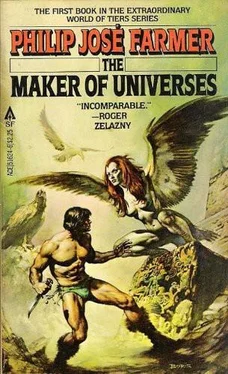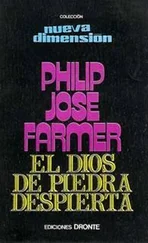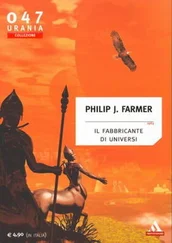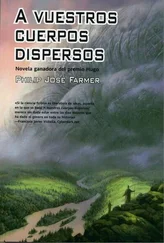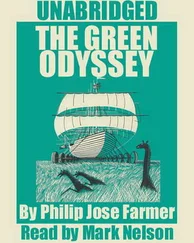Again, the trumpets flourished. The palomino and the black broke into a headlong gallop. They passed each other going at full speed, during which time both men swung their swords. They clanged together; a paralyzing shock ran down Wolff’s hand and arm. However, when he turned his charger, he saw that his antagonist’s sword was on the ground. The Yidshe was dismounting swiftly to get to the blade before Wolff. He was in such a hurry he slipped and fell headlong onto the ground.
Wolff rode his horse up slowly and took his time dismounting to allow the other to recover. At this chivalrous move, both camps broke into cheers. By the rules, Wolff could have stayed in the saddle and cut funem Laksfalk down without permitting him to pick up his weapon.
On the ground, they faced each other. The Yidshe knight raised his visor, revealing a handsome face.
He had a thick moustache and pale blue eyes. He said, “I pray you let me see your face, noble one. You are a true knight for not striking me down while helpless.”
Wolff lifted his visor for a few seconds. Both then advanced and brought their blades together again. Once more, Wolff’s stroke was so powerful that it tore the blade of the other from his grip.
Funem Laksfalk raised his visor, this time with his left arm. He said, “I cannot use my right arm. If you will permit me to use my left?”
Wolff saluted and stepped back. His opponent gripped the long hilt of his sword and, stepping close, brought it around from the side with all his force. Once more, the shock of Wolff’s stroke broke the Yidshe’s grasp.
Funem Laksfalk lifted his visor for the third time. “You are such a champion as I have never met. I am loath to admit it, but you have defeated me. And that is something I have never said nor thought to say. You have the strength of the Lord himself.”
“You may keep your life, your honor, and your armor and horse,” Wolff replied. “I want only that my friend von Horstmann and I be allowed to go on without further challenges. We have an appointment.”
The Yidshe answered that it would be so. Wolff returned to his camp, there to be greeted joyously, even by those who had thought of him as a Khamshem dog.
Chortling, Kickaha ordered camp struck. Wolff asked him if he did not think they could make far better time unencumbered with a train.
“Sure, but it’s not done very often,” Kickaha replied. “Oh, well, you’re right. I’ll send them on home. And we’ll get these damn locomotive plates off.”
They had not ridden far before they heard the drum of hooves. Coming up the road behind them was funem Laksfalk, also minus his armor. They halted until he had overtaken them.
“Noble knights,” he said, smiling, “I know that you are on a quest. Would it be too much to ask for me to ask to join? I would feel honored. I also feel that only by assisting you can I redeem my defeat.”
Kickaha looked at Wolff and said, “It’s up to you. But I like his style.
“Would you bind yourself to aid us in whatever we do? As long as it is not dishonorable, of course. You may release yourself from your oath at any time, but you must swear by all that’s holy that you will never aid our enemies.”
“By God’s blood and the beard of Moses, I swear.”
That night, while they made camp in a brake alongside a brook, Kickaha said, “There’s one problem that having funem Laksfalk along might complicate. We have to get the stain off your skin, and that beard has to go, too. Otherwise, if we run into Abiru, he might identify you.”
“One lie always leads to another,” Wolff said. “Well, tell him that I’m the younger son of a baron who kicked me out because my jealous brother falsely accused me. I’ve been traveling around since then, disguised as a Saracen. But I intend to return to my father’s castle—he’s dead now—and challenge my brother to a duel.”
“Fabulous! You’re a second Kickaha! But what about when he learns of Chryseis and the horn?”
“We’ll think of something. Maybe the truth. He can always back out when he finds he’s bucking the Lord.”
The next morning they rode until they came to the village of Etzelbrand. Here Kickaha purchased some chemicals from the local white-wizard and made a preparation to remove the stain. Once past the village, they stopped off at the brook. Funem Laksfalk watched with interest, then amazement, then suspicion as the beard came off, followed by the stain.
“God’s eyes! You were a Khamshem, now you could be a Yidshe!”
Kickaha thereupon launched into a three-hour, much-detailed story in which Wolff was the bastard son of a Yidshe maiden lady and a Teutoniac knight on a quest. The knight, a Robert von Wolfram, had stayed at a Yidshe castle after covering himself with glory during a tournament. He and the maiden had fallen in love, too much so. When the knight had ridden out, vowing to return after completing his quest he had left Rivke pregnant. But von Wolfram had been killed and the girl had had to bear young Robert in shame. Her father had kicked her out and sent her to a little village in Khamshem to live there forever. The girl had died when giving birth to Robert, but a faithful old servant had revealed the secret of his birth to Robert. The young bastard had sworn that when he gained manhood, he would go to the castle of his father’s people and claim his rightful inheritance. Rivke’s father was dead now but his brother, a wicked old man, held the castle. Robert intended to wrest the baronetcy from him if he would not give it up.
Funem Laksfalk had tears in his eyes at the end of the story. He said, “I will ride with you, Robert, and help you against your wicked uncle. Thus may I redeem my defeat.”
Later, Wolff reproached Kickaha for making up such a fantastic story, so detailed that he might easily be tripped up. Moreover, he did not like to deceive such a man as the Yidshe knight.
“Nonsense! You couldn’t tell him the whole truth, and it’s easier to make up a whole lie than a half-truth! Besides, look at how much he enjoyed his little cry! And, I am Kickaha, the kickaha, the tricky one, the maker of fantasies and of realities. I am the man whom boundaries cannot hold. I slip from one to another, in-again-out-again Finnegan. I seem to be killed, yet I pop up again, alive, grinning, and kicking! I am quicker than men who are stronger than me, and stronger than those who are quicker! I have few loyalties, but those are unshakable! I am the ladies’ darling wherever I go, and many are the tears shed after I slip through the night like a red-headed ghost! But tears cannot hold me any more than chains! Off I go, and where I will appear or what my name will be, few know! I am the Lord’s gadfly; he cannot sleep at nights because I elude his Eyes, the ravens, and his hunters, the gworl!”
Kickaha stopped and began laughing uproariously. Wolff had to grin back. Kickaha’s manner made it plain that he was poking fun at himself. However, he did half-believe it, and why should he not? What he said was not actually exaggeration.
This thought opened the way to a train of speculation that brought a frown to Wolff. Was it possible that Kickaha was the Lord himself in disguise? He could be amusing himself by running with hare and hound both. What better entertainment for a Lord, a man who has to look far and deep for something new with which to stave off ennui? There were many unexplained things about him.
Wolff, searching Kickaha’s face for some clue to the mystery, felt his doubts evaporate. Surely that merry face was not the mask for a hideously cold being who toyed with lives. And then there was Kickaha’s undeniably Hoosier accent and idioms. Could a Lord master these?
Well, why not? Kickaha had evidently mastered other languages and dialects as well.
Читать дальше
